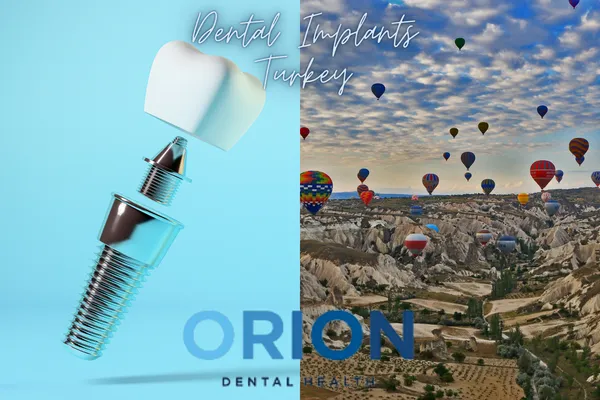Can those who smoke and drink alcohol have an implant?
Smokers shouldn't have implants since smoking has a detrimental impact on how well wounds heal. Smoking prevents the implant's bone from integrating with the bone, according to research once again. Smokers have a 200%–300% greater chance of their implants coming out of their body than average.

Alcohol, like cigarettes, has detrimental effects on and hinders the healing of wounds.
It cannot thus be argued that persons who use alcohol and tobacco cannot have implants. However, the recovery from wounds takes longer than expected. It is advised to abstain from smoking and drinking for at least 15 days after the treatment because of this.
Does tooth implant cancer cause?
Because titanium is a component of the implant, there have been no known cases of cancer in Turkey or the international literature.
Does implant damage tooth sinuses?
In the implant procedure performed by our experienced dentists in our clinic, the possibility of damaging the sinuses is almost negligible. However, if the bone volume is not suitable for the implant, the tip of the implant may damage the sinus cavity during procedure. To avoid such a situation, a sinus lift is applied.
In order to avoid these situations, you must make your clinic and dentist choices accurately.
How long does bone graft take?
In cases of bone loss and insufficiency, the bone transplant technique is used. Autogenous Bone Graft is the technique that dentists employ the most often. The treated region receives the tissue that was removed from the healthy part. It doesn't trigger an allergic response since it is patient tissue. It is an inexpensive surgery with a speedy recovery.
Complete fusion is obtained after the autogenous bone transplant operation in about three months. Depending on the patient and the quantity of graft used, this time frame may change.
What is a screwless implant?
There are two types of implant treatment options: traditional (screwed) and screwless. A titanium implant that is not screwed is inserted directly into the space that has been made in the jawbone during a screwless implant operation. With this procedure, there is no chance that the prosthesis will dislocate or that the screws will eventually go free.
Why is there blackness in the implant area?
When there are thin gums present, this darkness emerges. It produces cosmetic issues if it affects the front part of the upper jaw. When installing the implant, if our dentists foresee this darkness, they do a connective tissue procedure to improve the soft tissue thickness. This darkness is suppressed by the thicker soft tissue. When darkness first emerges, this process may still be performed.
Is there a feeling of numbness in the lips after the implant?
Numbness in the lip may sometimes be seen during the lower jaw implant process if the nerve canal that runs through the lower jaw is damaged. This sensation may sometimes be brought on by the implant pushing on a nerve and interfering with nerve signals. The implant has to be taken out as soon as possible if the numbness is brought on by pressure on the major nerve canal. The injured region will heal by itself once the implant has been removed. The implant is positioned such that it does not fall in the same spot as the injured region after surgery. Sometimes the removed implant might be replaced with a shorter implant that is placed concurrently.
There is no nerve route in the upper jaw that may lead to this issue. The upper jaw lip does not experience numbness as a result.
I lost my tooth a long time ago. Can I still have an implant?
You can, indeed. To assess the jaw's bone health, comprehensive X-ray and tomography imaging is used. The long-gone teeth may be replaced with implants if the bone density is good enough.
What is the difference between All On Four, All On Six, and Implant Treatment?
The three procedures are all for implants. Only various approaches are used. The dental implant process has already been discussed. Let's talk about the All on Four and All on Six methods quickly.
All-On-Four Therapy (All-On-4):
Anyone who has lost more than one tooth or all of their teeth may use this technique. According to this technique, four implants are created specifically for the patient and set on artificial teeth after being inserted into the jawbone at various angles.
All-On-Six Therapy (All-On-6):
A similar approach to All on Four is the All on Six Treatment (also known as All on 6). Six implants are only inserted into the jawbone via this approach, and prosthetic teeth are mounted on them.
Will other teeth be damaged while implants are inserted?
Your other teeth won't ever be harmed if the implant surgery is carried out by the experienced dentists at our office. In the appropriate hands, this software is regarded as a remedy for you. However, implants created by untrained individuals both harmed and lost these teeth.
Does gum recession occur after a tooth implant?
Gum disease is not a result of implant surgery. Because implants are biocompatible, the gums are not adversely affected. In the implant region, gingival recessions have a distinct cause.
The two main factors that contribute to gingival recession are poor dental hygiene and implant-prosthesis-gingival compatibility.
